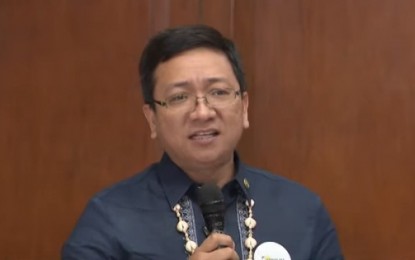
Department of the Interior and Local Government Spokesperson and Undersecretary Jonathan Malaya (File photo)
MANILA – The Department of the Interior and Local Government (DILG) on Sunday said the opposition of the so-called Makabayan Bloc in Congress to the economic amendments in the 1987 Philippine Constitution is based on an impractical and outdated economic model that would lead to higher unemployment and suffering of the people.
“The so-called Makabayan Bloc opposes the lifting of the restrictive economic provisions in our constitution because they adhere to their own so-called ‘national industrialization program’ where the electric, water, mining, oil, telecommunications and transportation industries, among others, are to be confiscated from their owners and taken over by the State as dictated by their obsolete ideology,” DILG Spokesperson and Undersecretary Jonathan Malaya said.
The House of Representatives has begun plenary debates on Resolution of Both Houses No.2 authored by Speaker Lord Allan Velasco.
Malaya said the alternative proposed by the so-called Makabayan Bloc is obsolete and impractical because it is pre-globalization and has been discarded by all nations all over the world.
He said the Makabayan Bloc would want us to abandon the free market economy and be protectionist in a globalized world.
“If we will follow their proposal, we will be bringing back our country to the dark ages and we will be a pariah in the global economy,” he added.
He said the Makabayan Bloc follows the NatDem (National Democracy) ideological line of Communist Party of the Philippines (CPP) founder Jose Maria Sison which dictates that all strategic industries must be nationalized or owned by the State.
He said the economic model of the National Democratic Front (NDF) being espoused by the so-called Makabayan bloc is contained in their proposed Comprehensive Agreement on Social and Economic Reform (CASER), which is one of the items being pushed by the CPP-National People’s Army-NDF in the collapsed peace talks with the government.
Among the items in CASER is the confiscation of all land used by foreign corporations and landlords, take-over of all large plantations and corporate farms by the State, take-over of all industries deemed as strategic by the Left, and the closure of all large corporations – whether foreign or local – to give way to their national industrialization program.
He said this type of economic model has been a disaster all over the world citing the collapse of the Soviet Union and its satellite countries in the 90s.
"All the remaining communist countries like China and Vietnam which are ruled by Communist parties have adopted free market economies," he said.
Malaya said he concurs with Presidential Peace Adviser Carlito G. Galvez Jr.’s statement that CASER is a product of a secret backchannel maneuvered by the communist insurgents where there was zero consultation with the government’s economic team, security forces, local agencies, and local government units, and most importantly, the Filipino people.
Given the impact of the pandemic to the Philippine economy, Malaya said economic amendments are necessary for the country to begin the road to recovery.
Citing figures from the National Economic Development Authority, he said the pandemic has caused a total income loss of PHP1.04 trillion last year. On average, that translated to PHP2.8 billion in salaries lost — or an annual income loss of PHP23,000 per worker.
He said for the country to fully recover from the Covid-19 pandemic, the government must open up the economy to achieve a truly inclusive investments-led economic growth that will create more jobs for the people especially since many Overseas Filipino Workers (OFWs) returned to the country amid the pandemic.
In January, the Senate conducted the first public hearing on the proposed lifting of the protectionist provisions of the Constitution.
In the House of Representatives, House Speaker Lord Allan Velasco and Rep. Alfredo Garbin Jr., chairman of the House Committee on Constitutional Amendments, proposed that the upper and lower Houses of Congress vote separately on the proposed economic amendments. (PR)
